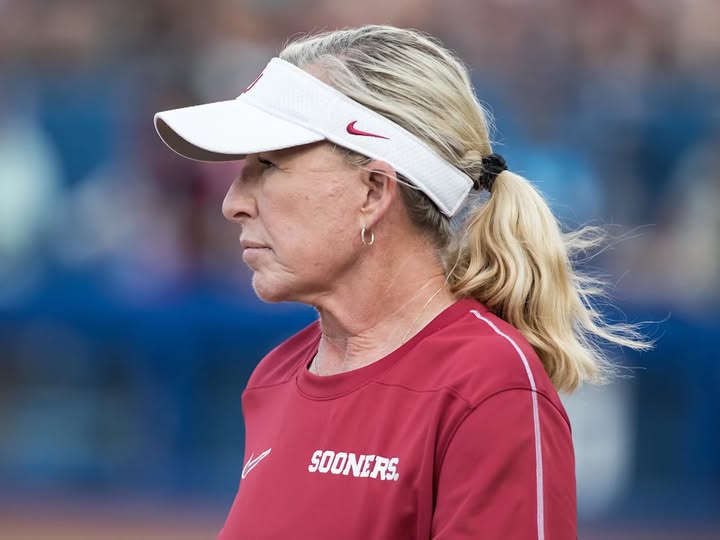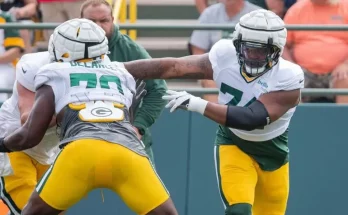The Women’s College World Series (WCWS) has long been the crown jewel of NCAA Division I softball—a thrilling display of grit, talent, and emotional highs and lows that often defines careers and builds legends. But in recent years, as the tournament’s popularity has surged, so too have the concerns around its grueling format. At the forefront of this increasingly urgent conversation is none other than Oklahoma’s legendary head coach, Patty Gasso.
Fresh off her team’s latest battle in Oklahoma City, Gasso is making headlines—not just for wins or championships, but for her call to action. The veteran coach has publicly urged the NCAA to reevaluate the WCWS schedule, arguing that the current structure places an undue physical and mental toll on student-athletes and skews the competitive balance of the event.
A Coach Who’s Seen It All
Gasso, a four-time national coach of the year and eight-time national champion with the Sooners, is no stranger to the rigors of postseason play. Her voice carries weight—not only because of her accolades but because she’s coached at every level of NCAA softball’s postseason structure. From regional play to the intensity of championship week, Gasso has a front-row seat to what athletes endure.
And she’s concerned.
“This is about more than softball,” Gasso said in a recent press conference. “It’s about protecting our student-athletes. We’re putting them in a position where they are physically spent, emotionally drained, and then asking them to perform at their peak in front of national audiences. It’s not right.”
A Brutal Gauntlet
The WCWS, hosted annually at the USA Softball Hall of Fame Stadium in Oklahoma City, features the eight remaining teams in a double-elimination tournament that spans roughly 7–10 days. In its current format, teams are often required to play multiple games over the span of a single day—especially if they fall into the loser’s bracket early on. The tournament culminates in a best-of-three championship series that can conclude less than 24 hours after semifinal elimination games.
“It’s a sprint,” Gasso explained. “You don’t get time to catch your breath. And if you have one bad game early, you might end up playing five games in three days. That’s a lot to ask, especially when you consider the pitch counts and recovery time needed.”
One of the main sticking points for Gasso is the contrast between the treatment of men’s and women’s teams in their respective College World Series tournaments.
“The men’s baseball schedule allows for more rest between games,” she noted. “They get off days. We don’t. Why is that? Why do the women have to endure a compressed schedule while the men don’t?”
Unequal Treatment: The NCAA Baseball Comparison
The NCAA Division I Baseball Championship offers more generous spacing between games, often providing a full day of rest between contests for most teams. This structure is crucial, especially for pitching staffs that rely on recovery time to prevent overuse injuries.
In contrast, softball teams often ride one or two ace pitchers throughout the tournament, and back-to-back appearances with little rest can have serious long-term consequences for these athletes.
“There’s no sugar-coating it,” said Dr. Emily Reyes, a sports medicine specialist who works with collegiate athletes. “The workload these young women endure—particularly pitchers—is extreme. Recovery is not just helpful; it’s essential. Without it, we risk injury, burnout, and diminished performance.”
Voices of Support
Gasso isn’t alone in her plea. Coaches across the country, including Alabama’s Patrick Murphy, UCLA’s Kelly Inouye-Perez, and Florida State’s Lonni Alameda, have echoed her concerns. Even players have started speaking out—carefully, but firmly—on the need for change.
Oklahoma senior utility player Alyssa Brito shared her perspective: “I love this game. I love the WCWS. But sometimes, it feels like we’re being asked to perform miracles on fumes. Our adrenaline gets us through, but our bodies pay the price afterward.”
Former Arizona standout and ESPN analyst Jenny Dalton-Hill was blunt in her assessment: “We need a more humane schedule. The product would be better, the players would be healthier, and the fans would still be engaged. It’s a win-win.”
Fan Perspective: Thrills, But at What Cost?
For fans, the WCWS is an action-packed rollercoaster—a festival of athletic excellence and drama. Attendance records are routinely broken, and ESPN viewership numbers continue to climb, making it one of the NCAA’s most successful postseason events from a ratings standpoint.
But more and more, fans are also becoming aware of the toll the format takes on athletes.
Social media has seen an uptick in fans and former players calling for reform. Hashtags like #FixTheWCWS and #FairScheduleNow have begun trending during tournament week, amplifying the pressure on the NCAA to respond.
One fan tweet went viral:
“We’re watching some of the best athletes in the country play doubleheaders in 95-degree heat with less than 12 hours between elimination and a national title game. That’s not elite competition—that’s exploitation. #FixTheWCWS”
Proposed Solutions: What Could Change?
Gasso has not only highlighted the problem but has offered solutions. Among her suggestions:
- Built-in rest days between the elimination rounds and the championship series.
- Revised game scheduling to avoid late-night starts followed by early games.
- Lengthening the WCWS tournament by one or two days to create a more humane timeline.
- Pitching-specific rules to ensure health, such as pitch count considerations or enforced rest periods.
“All it takes is the will to do it,” said Gasso. “We’re not asking for luxury. We’re asking for fairness. We’re asking the NCAA to prioritize athlete health the same way they do in other sports.”
The NCAA’s Response—So Far
When asked for comment, the NCAA released a brief statement acknowledging the feedback from coaches and players and indicating that a working group would be evaluating the WCWS structure in the offseason.
“We are committed to enhancing the championship experience for our student-athletes,” the statement read. “All feedback, including that from head coaches, players, and support staff, is being reviewed.”
However, critics say the NCAA has been slow to act. Some point to the disparity in facilities and accommodations that were spotlighted during the 2021 NCAA basketball tournaments as evidence of systemic inequity in women’s collegiate sports.
The Bigger Picture: Title IX and Equity
For many, the WCWS schedule issue is emblematic of broader concerns related to Title IX and gender equity in college athletics. While Title IX mandates equal treatment, the practical implementation is often inconsistent.
Gasso believes this moment could serve as a catalyst.
“This is our time to demand better,” she said. “These young women have earned it. They’re putting their bodies and souls into this sport. The least we can do is ensure they have the chance to compete on a level playing field.”
The Mental Health Component
In addition to physical fatigue, Gasso and others have underscored the mental toll of the compressed schedule. Athletes are not only playing but also dealing with media obligations, academic responsibilities, and the pressure of performing on a national stage.
“People see the celebrations, the trophies, the walk-offs,” Gasso noted. “But they don’t always see the ice baths at 2 a.m., the tears in the dugout, or the pressure to get up and do it all over again on no sleep.”
University of Oklahoma sports psychologist Dr. Claire Morrison explained, “Mental recovery is just as critical as physical recovery. The emotional stress of high-stakes games, especially in a packed schedule, can lead to anxiety, sleep deprivation, and even depression in some cases.”
Looking Ahead
While Gasso’s Sooners remain focused on the field, the veteran coach is equally committed to advocating off it. She’s assembling a coalition of coaches, athletic directors, medical professionals, and players to bring a formal proposal to the NCAA during the offseason.
“The NCAA needs to hear us loud and clear,” Gasso said. “We love this sport. We’re grateful for the platform. But we owe it to this generation—and the next—to do better.”
Patty Gasso’s legacy as one of the most successful coaches in NCAA softball history is already secure. But her willingness to challenge the status quo—on behalf of her players and the broader softball community—may end up being one of her most important contributions to the sport.
In a world where college athletics is increasingly commercialized and physically demanding, Gasso’s message is simple yet powerful: fairness, health, and dignity for the athletes must come first.



